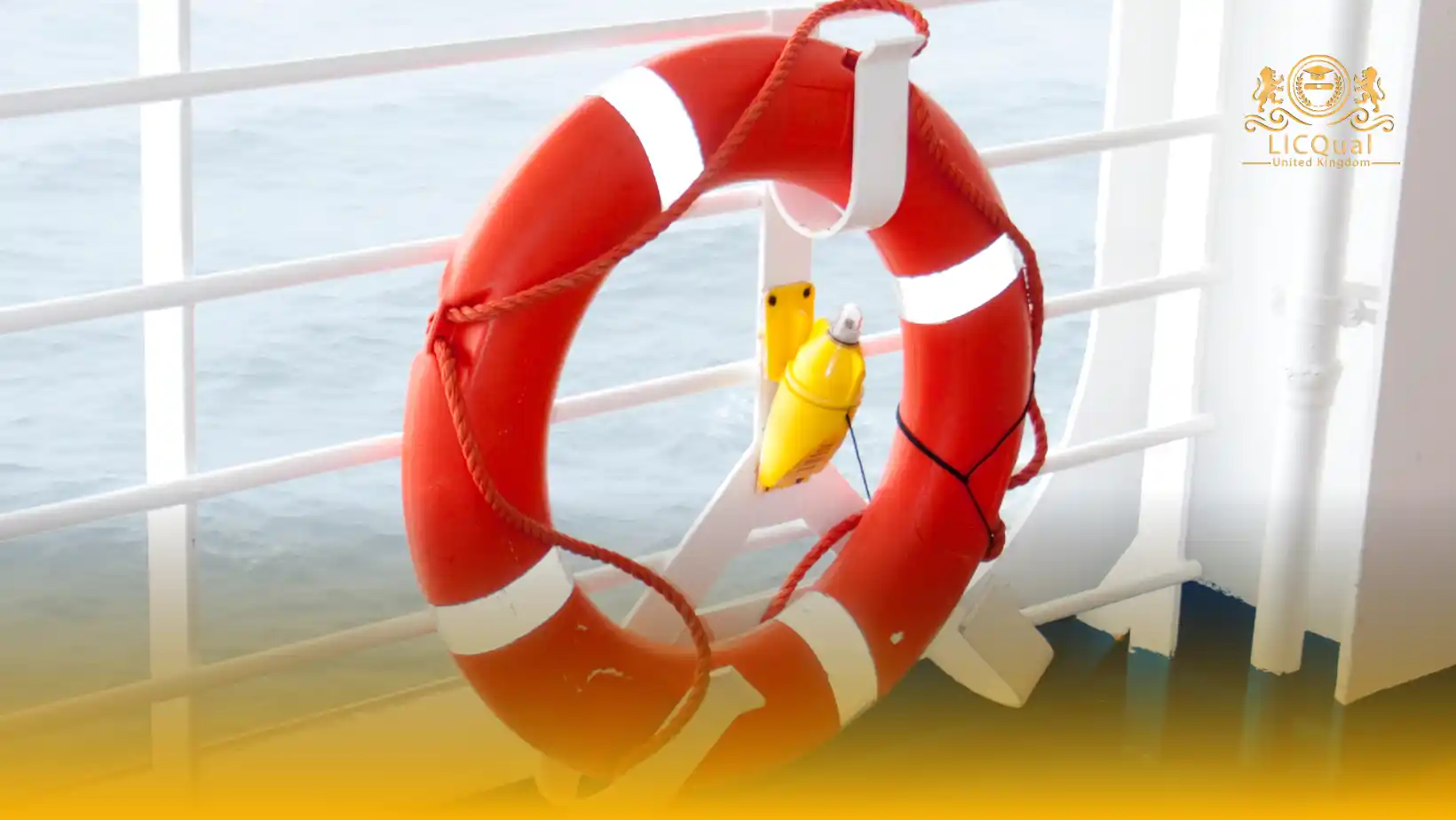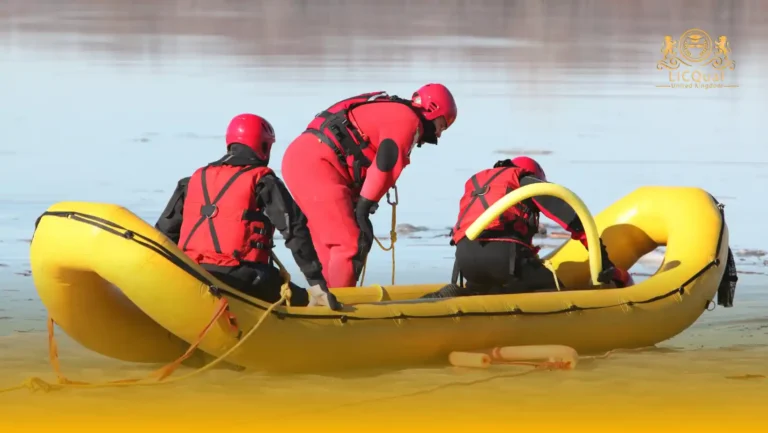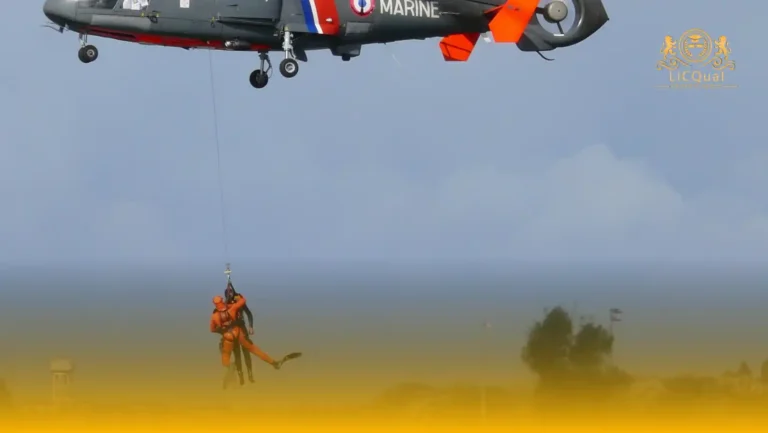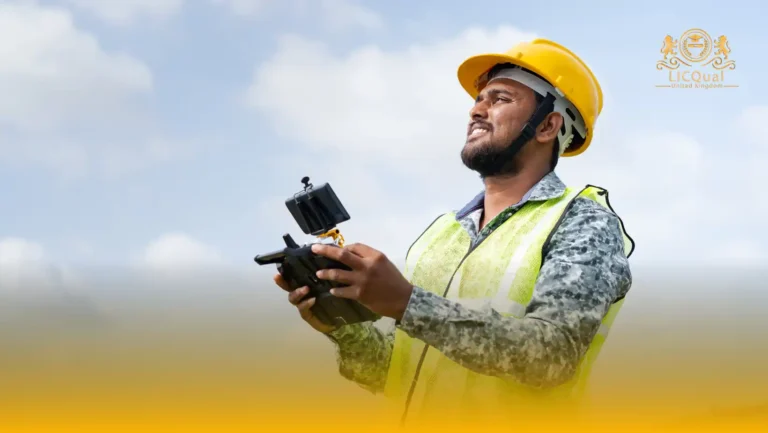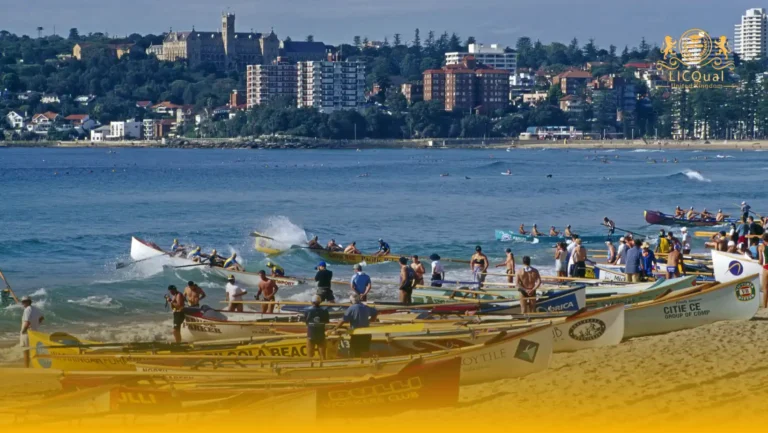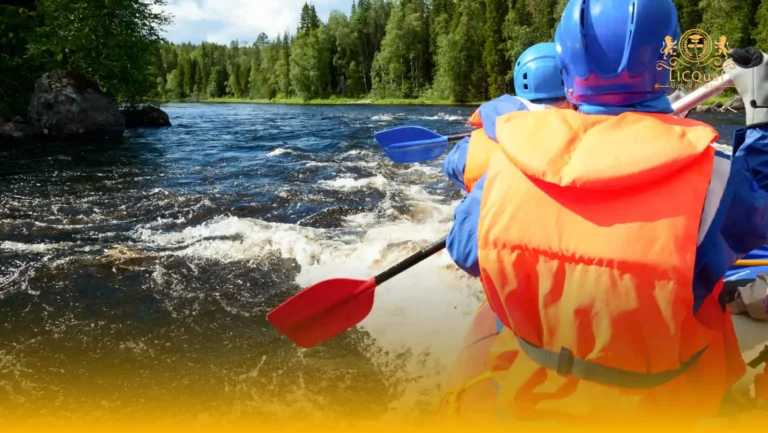The LICQual Level 3 Award in National Water Safety Management Programme (NWSMP) – DEFRA is a specialized qualification developed in alignment with the Department for Environment, Food & Rural Affairs (DEFRA) standards. This award is designed to equip water safety professionals with advanced skills and knowledge to manage safety risks effectively across a variety of aquatic environments, including natural waterways, recreational facilities, and community water bodies.
With increasing public engagement in water-based activities, the need for robust water safety management has never been more critical. This internationally recognized qualification focuses on comprehensive risk assessment, emergency preparedness, rescue techniques, and regulatory compliance, tailored specifically to DEFRA’s environmental and safety frameworks. Candidates will learn how to implement water safety policies that protect both the public and the environment, ensuring sustainable and safe use of aquatic resources.
The LICQual NWSMP – DEFRA award blends theoretical principles with practical application, covering water safety legislation, environmental considerations, community education, and multi-agency coordination. Graduates will be capable of leading water safety initiatives that align with national environmental policies and public safety objectives.
Ideal for water safety officers, environmental managers, community leaders, and rescue personnel, this qualification empowers professionals to promote safer aquatic environments in line with DEFRA guidelines. Whether advancing your career or fulfilling organizational requirements, the LICQual Level 3 Award in NWSMP – DEFRA equips you with the expertise to make a meaningful impact on water safety management.
Course Overview
Qualification Title
LICQual Level 3 Award in National Water Safety Management Programme (NWSMP) – DEFRA
Total Units
6
Total Credits
6
GLH
12
Qualification #
LICQ2200628
Qualification Specification
To enroll in the LICQual Level 3 Award in National Water Safety Management Programme (NWSMP) – DEFRA, applicants must meet the following criteria:
|
Qualification# |
Unit Title |
Credits |
GLH |
|---|---|---|---|
|
LICQ2200628-1 |
Principles of Water Safety and Risk Management |
1 |
6 |
|
LICQ2200628-2 |
DEFRA Water Safety Legislation and Regulatory Compliance |
1 |
6 |
|
LICQ2200628-3 |
Emergency Preparedness and Incident Response in Water Environments |
1 |
6 |
|
LICQ2200628-4 |
Specialist Water Rescue Techniques and Safety Procedures |
1 |
6 |
|
LICQ2200628-5 |
Community Engagement and Water Safety Education |
1 |
6 |
|
LICQ2200628-6 |
Leadership, Coordination, and Multi-Agency Collaboration |
1 |
6 |
By the end of this course, learners will be able to:
1. Principles of Water Safety and Risk Management
By the end of this unit, learners will be able to:
1 Explain key concepts, terminology, and principles of water safety.
2 Identify and assess water-related hazards in various environments.
3 Apply structured risk assessment methods to water safety scenarios.
4 Recommend control measures to mitigate identified risks.
5 Demonstrate an understanding of environmental factors influencing water safety.
2. DEFRA Water Safety Legislation and Regulatory Compliance
By the end of this unit, learners will be able to:
1 Describe DEFRA’s role and responsibilities in water safety management.
2 Interpret relevant national and international legislation related to water safety.
3 Apply compliance requirements to operational water safety activities.
4 Demonstrate an understanding of environmental protection obligations in rescue operations.
5 Maintain accurate documentation for legal and regulatory purposes.
3. Emergency Preparedness and Incident Response in Water Environments
By the end of this unit, learners will be able to:
1 Develop water safety emergency response plans in line with best practice.
2 Demonstrate understanding of the incident command system for water emergencies.
3 Apply effective communication protocols during rescue incidents.
4 Coordinate resources and personnel in emergency situations.
5 Conduct post-incident reviews to identify improvements.
4. Specialist Water Rescue Techniques and Safety Procedures
By the end of this unit, learners will be able to:
1 Demonstrate safe and effective shallow, deep, and swift water rescue techniques.
2 Use rescue equipment and personal protective gear according to safety standards.
3 Apply casualty management procedures in water-related incidents.
4 Execute self-rescue techniques in hazardous water conditions.
5 Operate within safety protocols to prevent secondary incidents.
5. Community Engagement and Water Safety Education
By the end of this unit, learners will be able to:
1 Design and deliver public water safety awareness campaigns.
2 Educate communities on preventative measures for water-related accidents.
3 Engage with schools, local authorities, and community groups to promote safety.
4 Evaluate the effectiveness of public engagement initiatives.
5 Adapt communication strategies for diverse audiences.
6. Leadership, Coordination, and Multi-Agency Collaboration
By the end of this unit, learners will be able to:
1 Apply leadership skills in managing water safety and rescue teams.
2 Coordinate multi-agency collaboration during incidents.
3 Make effective decisions under pressure in dynamic environments.
4 Allocate roles and responsibilities within operational teams.
5 Conduct debriefings and implement lessons learned from operations.
The LICQual Level 3 Award in National Water Safety Management Programme (NWSMP) – DEFRA is designed for professionals and individuals who want to advance their expertise in water safety management. This DEFRA-accredited programme suits those responsible for supervising, managing, or implementing water safety practices across a range of environments. Whether you are in aquatic facilities, coastal operations, emergency services, or community programs, this award equips you with the knowledge, skills, and professional recognition needed to excel.
Aquatic Centre Professionals
- Pool managers and supervisors looking to enhance safety protocols
- Lifeguards aiming to gain advanced water safety qualifications
- Staff responsible for daily operational safety and risk assessments
- Coordinators overseeing swimming lessons and recreational programs
- Professionals implementing emergency drills and safety checks
- Individuals managing water quality and compliance standards
Coastal and Marine Facility Staff
- Beach safety officers ensuring public safety in coastal areas
- Staff monitoring tidal, current, and environmental hazards
- Professionals conducting rescue operations and emergency planning
- Facility managers overseeing safety at marinas and docks
- Coordinators of water-based tourism and recreational activities
- Team leaders implementing DEFRA-compliant safety protocols
Emergency Services Personnel
- Fire and rescue teams specializing in water-related emergencies
- Paramedics and first responders seeking water safety specialization
- Flood response and disaster management professionals
- Individuals managing aquatic emergency drills and planning
- Staff coordinating public awareness campaigns for water safety
- Team leaders ensuring compliance with national safety regulations
Hospitality and Tourism Professionals
- Resort and hotel staff managing pools and recreational water areas
- Event organizers coordinating water-based activities
- Staff ensuring visitor safety during aquatic programs
- Professionals implementing local and national water safety laws
- Team leaders maintaining health and safety standards
- Staff supervising guests in swimming and water leisure areas
Educators and Trainers
- Instructors delivering water safety and swimming courses
- Coaches leading rescue and safety training programs
- Professionals developing educational content for communities
- Trainers assessing participants’ water safety knowledge
- Staff mentoring teams in emergency response techniques
- Individuals promoting water hazard awareness programs
Government and Regulatory Staff
- Officials enforcing water safety legislation and DEFRA standards
- Inspectors evaluating aquatic facilities for safety compliance
- Policy developers establishing water safety guidelines
- Professionals conducting audits and reporting incidents
- Staff recommending improvements in water safety operations
- Individuals managing national or regional water safety programs
Aspiring Water Safety Leaders
- Professionals aiming to lead teams in water safety management
- Individuals seeking career advancement in aquatic safety
- Staff responsible for long-term safety planning and strategies
- Leaders implementing emergency response procedures
- Professionals obtaining DEFRA-recognized certification
- Individuals looking to gain international recognition in water safety
Assessment and Verification
All units within this qualification are subject to internal assessment by the approved centre and external verification by LICQual. The qualification follows a criterion-referenced assessment approach, ensuring that learners meet all specified learning outcomes.
To achieve a ‘Pass’ in any unit, learners must provide valid, sufficient, and authentic evidence demonstrating their attainment of all learning outcomes and compliance with the prescribed assessment criteria. The Assessor is responsible for evaluating the evidence and determining whether the learner has successfully met the required standards.
Assessors must maintain a clear and comprehensive audit trail, documenting the basis for their assessment decisions to ensure transparency, consistency, and compliance with quality assurance requirements.

